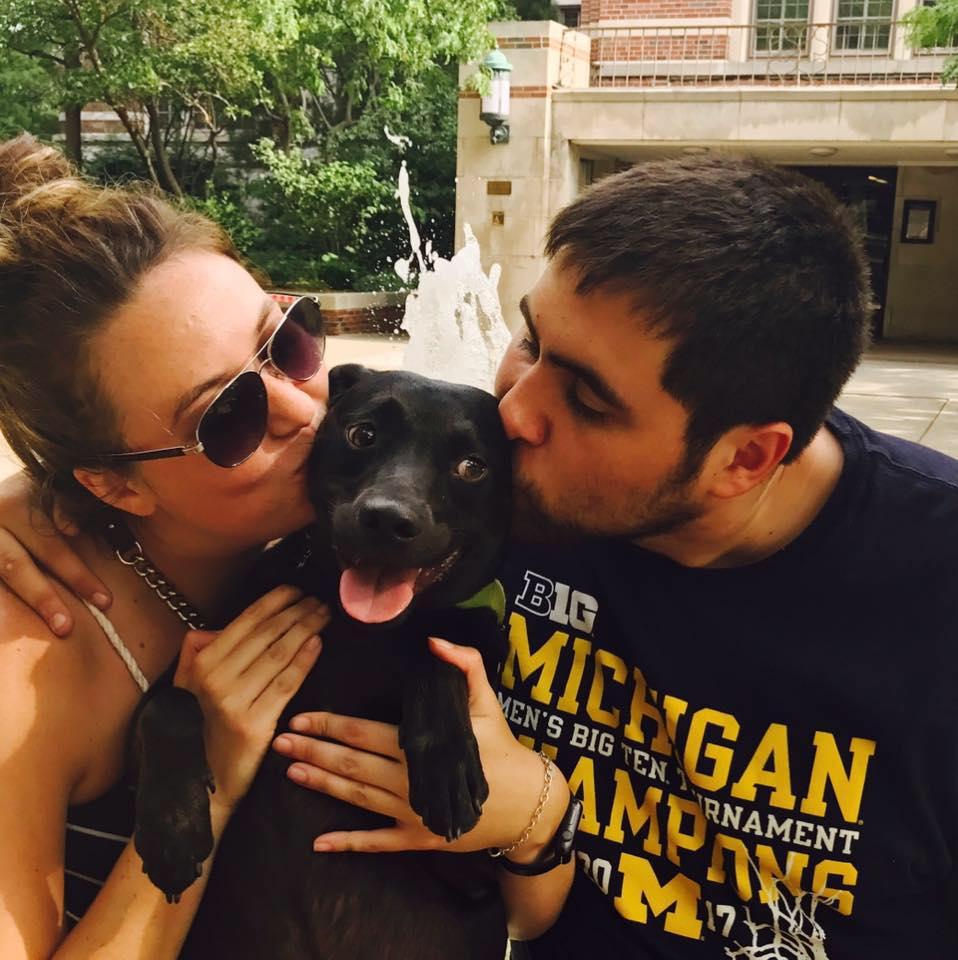Our staff spotlight this week is Brianna Christy. Brianna is the Community Programs Coordinator at the Ginsberg Center.
What is your professional background in?
I have my Masters in Social Work from the U-M School of Social Work. I am clinically trained to be a therapist and a clinician, however I am more in the data evaluation space. Within the data space I still utilize my interpersonal practice training, as well as the ways in which empathy and communication are important within data and evaluation.
Before working at the Ginsberg Center I worked with Big Brothers Big Sisters of Washtenaw County. My last term of grad school I was very fortunate that one of my field placements from school happened to be hiring. I really loved that work, it was more in a role of preventative social work instead of an intervention. While I was at Big Brothers Big Sisters my main role was a match specialist, which was a clinical role evaluating families and matching them with good mentors, and providing support to them. To become a fully licensed social worker you must be supervised by a licensed supervisor. Typically that costs a good amount of money but my director at the time of Big Brothers Big Sisters was already licensed. In exchange for free supervision from my director to advance my degree from a limited license to fully licensed, I did the data work at Big Brothers Big Sisters. Taking my experience engaging with community members,families, and clients in a therapeutic manner, as well as data experience, from Big Brothers Big Sisters, blended well to allow me to sit in the space I am now with the Ginsberg Center.
What is your job function at the Ginsberg Center?
My current title is the Community Programs Coordinator. My role has shifted quite a lot over the two and a half years I have been here. When I initially started I was a split position between Community Technical Assistance Collaborative (CTAC) with the Ginsberg Center and Michigan Engaging Community through the Classroom (MECC). After a year with the split position MECC and the Ginsberg Center split ways and Ginsberg took me on as a full time employee. My role shifted from only supporting CTAC to expanding into more data and evaluations support for the Ginsberg Center as a whole.
What is one of your favorite projects you have worked on at the Ginsberg Center?
One of my favorite projects was working in a cross-campus capacity with other folks who do similar work at U-M for the Data for Public Good Symposium. This was our fourth year hosting the symposium. It has grown in popularity over the years, but we were nervous for this past one because it had to be held in a virtual format. We also shifted to opening the symposium to more than just the U-M community. It was very exciting to see folks from different universities across the country, as well as more community partners and nonprofits that were able to attend. The deliverables that we put on were really targeted to an audience outside of academia, really focusing on data for the public good. We discussed projects that were happening here on campus that have a large impact on communities that don’t have the same resources that U-M has. The most exciting piece of the symposium was having Heather Kraus, from an organization called We All Count, lead a workshop with us for data equity and how you can take the onus of the problem off the individuals and put it back on systems. In data it is so important to think about every small choice and methodology. Even if you think you are being unbiased choosing a methodology, those methodologies are still rooted in a certain world view. I was most excited about that workshop because there were not only folks from academia, but also students and community partners. Many reached out to say this was a breath of fresh air in the way that data is talked about.
What are your social change interests in your personal life?
What it boils down to is the jargon associated with social change, and the jargon that is associated with our work. Jargon is important within academia especially. In actuality, jargon doesn't move social change movements forward. I have a lot of passions, but when I think about the root of all of those social issues it comes back to equity. Thinking about what equity truly is and the idea around DE&I initiatives especially in academica. A lot of spaces are full of jargon speaking about DE&I, but when you look deeper into their data it is not actionable or measurable. There is not an indicator to be able to say this is why it is inequitable and these are the changes we made. A big question is how do you get folks to go deeper than diversity, specifically within higher education. A lot of DE&I initiatives in higher ed are focused on increasing enrollment for students of color, but just because you are increasing diversity doesn't mean you are changing the systems in which these individuals are now coming to. Thinking about the dangers or the potential harm that is created by diversifying before planning for equity and inclusion in a space is extremely important.
What has helped you during the pandemic (object, cooking, food, TV, etc.)
I have been obsessed with the TV show Survivor. Pre-pandemic I loved watching Survivor and during quarenting I have been re-watching all the seasons. The thing I love about Survivor is it is such a microcosm of society. It allows for deeper conversations with friends and family in a space where the stakes aren't as high, in terms of having educational teaching moments. The show is a such a great mix of space for conversations and fun entertainment.

